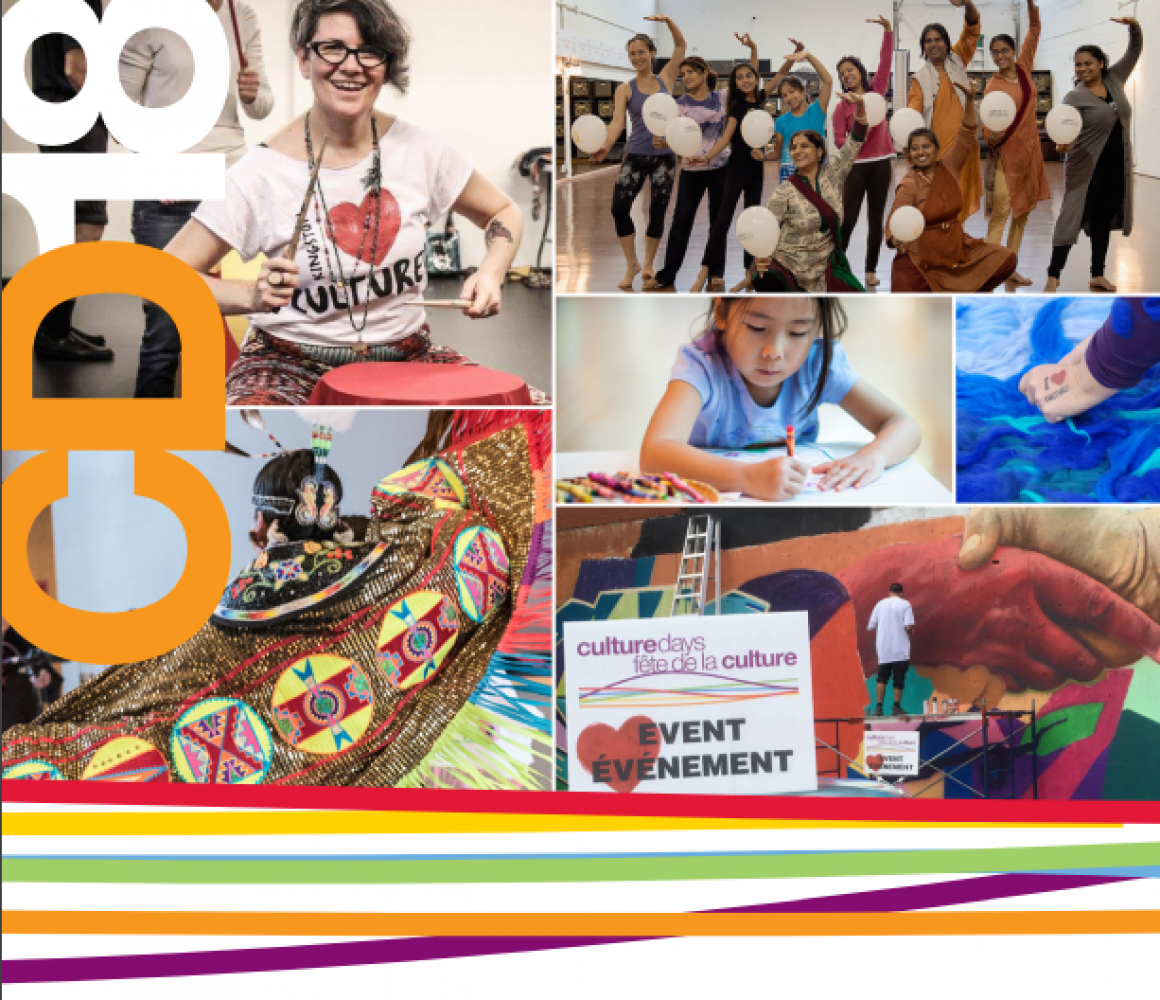8 Tips for Organizing Culture Days in Rural Areas

Participation in Culture Days in rural areas is growing across Canada! While organizing Culture Days in dispersed communities can often present challenges, the weekend is also an opportunity to bring communities together in celebration. We asked our rural organizers for their top tips on mobilizing their communities to create a successful Culture Days weekend.
1. Start small & specific
Adapt Culture Days to your communities – instead of organizing as many activities as possible, focus on the needs of your region.
Set goals. How many activities do you want to have in your region this year? Which communities do you want to focus on? Is there a cultural sector or initiative in your area that needs special support?
Set parameters. It might not be feasible to schedule three full days of activities. Consider programming your region’s Culture Days events on one or two days, and take into account which days might work best for your community. Will daytime activities on Friday, when most people have work or school, draw enough attendance?
2. Diverse activities with a diverse population
Because regional populations are diverse and dispersed, it’s good to have a wide array of activity types. Think broadly about what constitutes your area’s local culture and include things like farming and harvest festivals, heritage sites and historical personages of note, as well as hiking, boating, fishing and hunting related cultural activities.
Activities can:
Highlight local artists & local practices
Celebrate regional history
Explore regional geography
3. Set concrete activity times
Setting concrete start and end times makes it easier for participants to plan their Culture Days weekends and, as a result, can boost your activity attendance. Participants will plan their travel around activities they want to be sure to attend. If activities are open-ended, participants sometimes feel like they have all day to attend, and may put off arriving until it is too late!
4. Coordinate your communities
Work with activity organizers to ensure that activities aren’t all happening at once and that participants will have time to get from one activity to the next. Coordination strategies include:
Distributing a Bright Spots schedule of local activities which participants can use to plan their weekend
Developing a Cultural Passport which motivates participants to attend as many activities as possible
Creating centralized activity hubs, where many activities occur in the same location. Hubs make it easier for participants to attend multiple activities and encourage collaboration between artists. Check out our tip sheet on hubbing for more information.
5. Bridge the distance between activities
Though hubbing is a good strategy, you won’t be able to centralize all the activities in vast regions. What you can do, is make it easier for participants to attend activities that are more spread out.
Plan a ‘Culture Bus’, which takes participants to and from activities around the region, so that participants don’t have to worry about organizing transportation
Create Culture Days maps for participants
Organize discounted or free parking or other forms of accessible transportation during the Culture Days weekend
Schedule each day of the weekend by community (i.e. Culture Days activities happen in Huntsville on Saturday and in Gravenhurst on Sunday)
6. Pick a Theme
A theme for all Culture Days activities across your rural area will help to tie everything together and creates a hook for the media to focus on. For example, ‘Communitrees ’ invited everyone in Huron County to make unique works of art using living trees as their canvas for Culture Days . Together, participants created a large-scale outdoor public art gallery!
7. Develop relationships with activity organizers
When activity organizers are spread out, it can be difficult for them to feel like they are a part of the national celebration – you can be the link that connects them. Form personal relationships with activity organizers and incorporate them into the movement.
Conduct in-person information sessions with groups and boards to encourage them to participate
Plan meet-ups where activity organizers can get to know each other and network
Deliver swag (balloons, buttons, etc.) to organizers in person – that way they get to meet you prior to the weekend
Attend activities far and wide during the Culture Days weekend – activity organizers will appreciate your support, and you can get a sense of what needs to be improved upon in years to come
Follow up with activity organizers after Culture Days – ask them individually how their experience was and what challenges they faced
8. Promote Culture Days regionally
When promoting Culture Days, brand it as a regional event. Regional promotions encourage the public to visit multiple communities and to explore a greater number and wider range of activities.
Create regional events on Facebook, place listings in local newspapers, and organize radio & print interviews to promote the event across your region.
Reach out to your Regional Tourism Organization (RTO) for marketing support.
Submitted by Rosie Long Decter of Ontario Culture Days, 2015 based on content and expertise provided by Elizabeth Bender, Cultural Coordinator of Township of Centre Wellington and Pam MacKenzie, Culture Days volunteer organizer for District of Muskoka, Timiskaming District, and Temagami.



